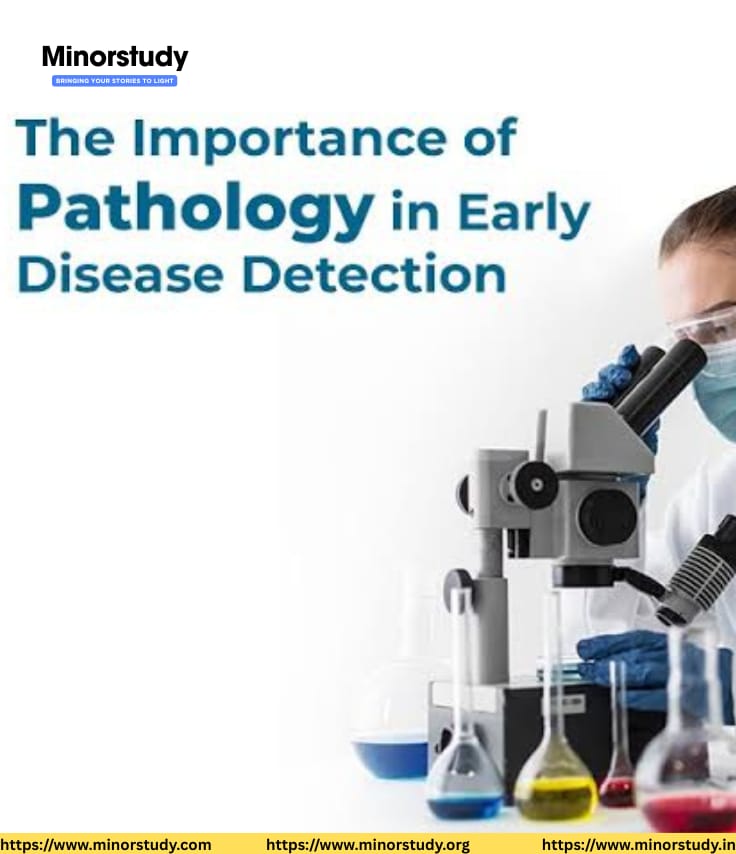🔍 Introduction: The Silent Hero Behind Every Diagnosis
Every successful treatment begins with a correct diagnosis—and that diagnosis often begins with pathology. From identifying infections and tumors to uncovering genetic disorders, pathology is the science of understanding disease at its core.
- 🩺 What is Pathology?
- 🕰️ History of Pathology
- 📌 Interesting Facts About Pathology
- ❓ Frequently Asked Questions (FAQs)
- Q1: Why is pathology so important in early disease detection?
- Q2: Is pathology only about cancer?
- Q3: What’s the difference between a pathologist and a lab technician?
- Q4: Can pathology help in preventive care?
- Q5: How long does it take to become a pathologist?
- 📅 Timeline of Pathology in Modern Medicine
- 🎯 Significance of Pathology in Medicine
- 🙌 Wishing Note to the Heroes in White Coats
- 🧠 Importance in Our Daily Life
- 🧪 Observance & Recognition
- ✅ Important Points Summary
- 🔚 Conclusion: The Lifesaving Power of Pathology
In a world where diseases like cancer, diabetes, or even pandemics can spread silently, early detection is everything—and pathology is its unsung hero. Yet most people know very little about this crucial medical field.
This article explores the history, facts, significance, timeline, daily impact, and societal importance of pathology, and why it deserves far more recognition than it currently receives.
🩺 What is Pathology?
Pathology is the branch of medicine that studies the causes and effects of disease. It plays a central role in diagnosing conditions by examining blood, tissue, organs, and bodily fluids.
There are three major types of pathology:
Anatomical Pathology – Focused on structural changes in cells/tissues.
Clinical Pathology – Deals with lab tests like blood, urine, and microbiology.
Molecular Pathology – Involves gene and molecular-level testing.
🕰️ History of Pathology
Pathology’s roots trace back to ancient Egypt and Greece, where early physicians observed disease symptoms in the human body.
Key Historical Timeline
| Year | Event |
|---|---|
| ~300 BCE | Hippocrates theorized about bodily fluids (humors) and disease. |
| 1628 | William Harvey described blood circulation, helping future pathology. |
| 1761 | Giovanni Morgagni published the first major book linking symptoms to autopsy findings. |
| 1858 | Rudolf Virchow, the “Father of Modern Pathology,” emphasized cellular basis of disease. |
| 1900s | Introduction of microscopes revolutionized histopathology. |
| 2000s | Genetic and molecular diagnostics made early disease detection more precise. |
📌 Interesting Facts About Pathology
Behind Every Test Is a Pathologist: Most diagnoses—from cancer to infections—are confirmed by pathologists.
Over 70% of Medical Decisions are based on pathology test results.
First COVID-19 Identification was enabled through molecular pathology techniques.
Digital Pathology is now enabling AI-powered diagnostics worldwide.
Pathologists rarely meet patients directly but influence every patient’s care.
❓ Frequently Asked Questions (FAQs)
Q1: Why is pathology so important in early disease detection?
Because it identifies changes at cellular or molecular levels—often before symptoms even appear, giving doctors a head start in treatment.
Q2: Is pathology only about cancer?
No. While cancer diagnosis is a big part, pathology also helps detect infections, autoimmune disorders, genetic mutations, organ failures, and metabolic diseases.
Q3: What’s the difference between a pathologist and a lab technician?
A pathologist is a medical doctor who interprets lab results.
A lab technician performs the tests under the guidance of a pathologist.
Q4: Can pathology help in preventive care?
Absolutely. Screening tests like pap smears, mammograms, and colon biopsies help detect conditions before they become severe.
Q5: How long does it take to become a pathologist?
Typically 10–12 years of education, including medical school and specialty training.
📅 Timeline of Pathology in Modern Medicine
| Era | Advancement |
|---|---|
| Ancient Times | Symptom-based disease assumptions |
| 1600s–1800s | Correlation between anatomy and disease developed |
| 1850s | Cellular theory of disease established |
| 1900s | Lab-based testing became routine |
| 2000s–2020s | Molecular, genetic, and digital pathology emerged |
🎯 Significance of Pathology in Medicine
Early Detection = Better Outcomes: Pathology can detect cancer or infections before symptoms appear, increasing survival rates.
Accurate Diagnosis: It ensures patients receive the right treatment, preventing misdiagnosis.
Monitoring Progress: Blood tests and biopsies help assess if treatment is working.
Disease Prevention: Regular pathology-based screenings can prevent diseases from developing in the first place.
Public Health Surveillance: It plays a role in tracking epidemics and antimicrobial resistance.
🙌 Wishing Note to the Heroes in White Coats
💐 Wishing heartfelt gratitude to all pathologists, lab technicians, and scientists working behind the scenes. Your work doesn’t just diagnose diseases—it saves lives silently, tirelessly, and precisely.
You are the brain and microscope of modern medicine. May your contributions continue to bring clarity to chaos and hope to the hopeless.
🧠 Importance in Our Daily Life
Most people only think of doctors and nurses, but every diagnosis they make is powered by pathology. Here’s how it matters in everyday life:
Routine Blood Tests – Identify diabetes, cholesterol, anemia.
Pap Smears – Save lives by detecting early-stage cervical cancer.
COVID Testing – Done via molecular pathology (RT-PCR).
Biopsies – Diagnose cancers and infections accurately.
Pregnancy Screening – Identify fetal disorders early.
Without pathology, these life-saving insights would be impossible.
🧪 Observance & Recognition
While pathologists may not be as visible as surgeons or physicians, they are honored through:
National Pathology Day (November 15 in India)
Medical Laboratory Professionals Week (last week of April, globally)
Cancer Awareness Months where biopsy and diagnosis are central
Digital Pathology Day, highlighting tech in disease detection
✅ Important Points Summary
Pathology is crucial for early disease detection, diagnosis, and treatment planning.
Originated from ancient observations; revolutionized by microscopes and modern science.
Over 70% of all clinical decisions depend on pathology results.
It impacts everyone—from prenatal health to cancer care.
Its future lies in AI, genetics, and digital diagnostics.
🔚 Conclusion: The Lifesaving Power of Pathology
In the race against time, especially in diseases like cancer, stroke, or infections, early diagnosis is the game-changer—and pathology is the game-maker.
Though they work in the shadows, pathologists are the very reason patients receive timely and accurate treatments. They are the eyes that detect illness at the tiniest level, long before symptoms scream for attention.
From one drop of blood to a life-saving diagnosis, pathology isn’t just a field of medicine—it’s a lifeline.
Understanding its importance helps you become a smarter, safer, and more proactive participant in your own health journey.








